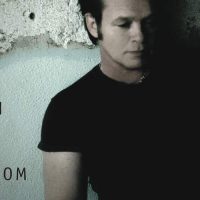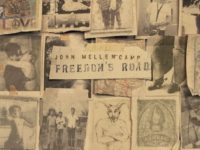Hey Mr. Mellencamp, last night I came across your article on the Huffington Post. Interesting stuff. And yeah, the music “industry” has indeed changed. But I don’t really want to rehash all of the technical and financial issues here. Just like in politics, people have chosen sides and spend most of their time talking right by each other. It’s boring and, sadly, gets us nowhere.
No, instead…I want to talk about “Jack and Diane.” God, I used to fucking detest that song. When I was stumbling through college, most of my friends had copies of American Fool. I never could figure out why they liked that song. Sorry. Looking back, I’m not even sure why I hated it, but it kind of enraged me that everybody else didn’t. This, coming from a guy who owned a copy of Chuck Mangione’s Feels So Good. Apparently, musical snobbery will block a person’s hypocrisy detectors.
So there it is. I hated that one song, but not you.
Time went on and tunes like “Pink Houses,” “Small Town,” “Rain on the Scarecrow,” and “Cherry Bomb” really got under my skin. Decades later those songs remind me of when we were all hanging around each other’s apartments, trying to settle in to young adulthood, waiting for it to feel normal.
The only chance I had to see you live was when you were touring on Human Wheels. Despite it being at a too-large baseball park, you put on a great show. It’s sad that what I remember of this is desperation. My marriage had been crumbling for years. It was tough to listen to pop music back then. I sat there half-enjoying the music and half-wondering what the hell I was going to do.
My mom died near the end of spring, 2008. “Longest Days,” released hardly a month later, had that line “Sometimes you get sick and you don’t get better.” Yeah, it was true. Also, just about impossible for me to listen to at that point.
I’m not sure where you’ll be going after No Better Than This (which I really dug). I loved that quiet intensity. It’s something the world could use a little more of.
While I was thinking about how to put this essay together, I was sitting here with my computer watching the setlist go by for Bruce Springsteen’s show in Hartford, Connecticut. Somebody commented on Twitter that “It’s nights like this when Bruce Springsteen makes you feel you’re 21 again.” That is exactly how I feel about “Jack and Diane.” And I can easily draw a line from the person I am today back through all of those experiences (and songs) and end up in that dorm where my roommate tortured me with your record on a nightly basis.
What I’m saying is that this stuff matters to people. You’ve had various passions for all sorts of issues and transformed them into art…which in turn was woven through the lives of many. People have been doing this for a long time, much longer than the short period of art-as-commerce. So I have no fear of music disappearing. And who knows? Maybe a new delivery model will develop (we’re already seeing a sort of Patronage 2.0 coming along) that’s more financially stable.
In the meantime, I will continue to listen, write (Hey! Another job that doesn’t pay anymore!) and wait for inspiring music to be created. And this morning I’ll celebrate the start of the weekend with “Longest Days.” Life is short, even in its longest days? No shit. I might even cue up “Jack and Diane” after that.
Click image to purchase…
- Why the Rolling Stones’ Harrowing ‘Gimme Shelter’ is Still Revealing New Depths - November 18, 2024
- How Talking Heads’ ‘Fear of Music’ Opened Up a World of Art and Sound - August 5, 2024
- How Deep Cuts Propelled Bruce Springsteen’s ‘Born in the U.S.A.’ - June 4, 2024






MORE FROM AROUND THE WATERCOOLER AT SER TOWERS …
S. VICTOR AARON: Ain’t that America?
MARK SALESKI: You know, I really do feel kind of bad that people don’t buy “stuff” like they used to. But that’s for reasons that don’t have a lot to do with money. Mellencamp’s argument just shows how little he knows about technology.
S. VICTOR AARON: Mellencamp staked out no new position, offered no fresh solutions to the problem. Same arguments, same rebuttals (in the comments section) that have been made for the last 12 years. And comparing search engines to department stores? C’mon, man.
MARK SALESKI: You force isps into some kind of legal corner and technologists will make that “problem” go away by adding layers to hide what data’s being shuffled around. Of course, it can be argued that there should just be some sort of flat tax added to internet fees. Great, then it’ll be like Spotify, with every artist getting a monthly check for 37 cents.
S. VICTOR AARON: I just wrote a review last night on an album that the record company is offering FOR FREE via a download. The artist approached me directly about
reviewing it. He was thrilled when I told him I would do it and in my review I’m telling readers how to get his music without paying for it, just as the artist wants it. This isn’t an isolated andecdote, as writers we’ve all encountered musicians happy to get any kind of coverage. What does that tell us? It says that for 99%
of musicians, not the one percenters like Cougar, the goal is to just get heard. The more people who hear it, the more likely it will find people who connect to the music and will be motivated to go pay the ticket/cover to see them live. And then, if they like the live show, they may actually go buy the record, too.
NICK DERISO: It’s harder, in the sense that signed artists don’t have the infrastructure around them that labels once provided. On the other hand, musicians now get to keep whatever coin they can muster up. Remember, behemoths like CBS and Warners didn’t do all of that A&R stuff for free. Of course, your average bar band isn’t thinking about any of that stuff, anyway. They’re hustling cover charges and trying to get their newest song noticed. The only difference is, it’s not on the local college station, but rather on Band Camp.
S. VICTOR AARON: I don’t think the dynamic has changed much over the years, either. I think what has changed for those 99%-ers is that it’s easier and cheaper to get their music into more people’s ears. Johnny isn’t really speaking for them, he’s taking up for Don Henley.
DERRICK LORD: Bingo. I can understand wanting to get paid for your product. I can even support it depending on how they want to come at me. But, art as a hobby doesn’t sound all that bad to me. I’ll bet it doesn’t sound all that bad to millions of garage bands all over the world that just want that Saturday night gig and a chance to see more than 13 people in the room.
S. VICTOR AARON: Besides … isn’t Don Henley rich as fuck?
DERRICK LORD: Silly old me. I tend to pay more attention to someone who does for love rather than money anyway.